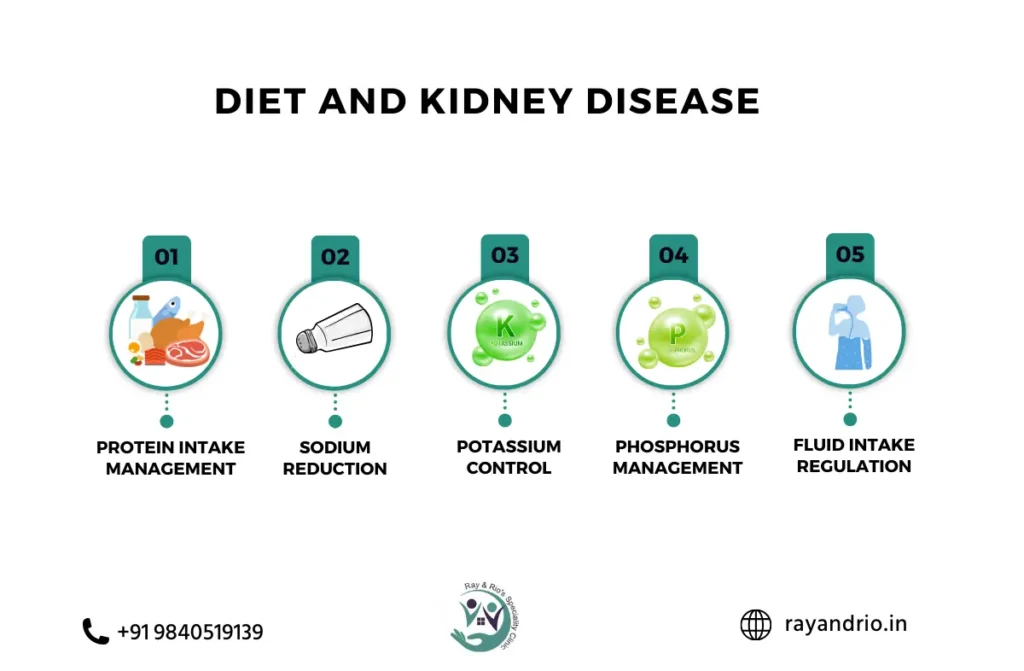Kidneys play a vital role in keeping our bodies healthy. They filter waste, balance fluids, and regulate blood pressure. But when they stop working properly, it can lead to kidney failure, a life-threatening condition. The good news? You can take steps to protect your kidneys and reduce the risk of serious damage.
In this guide, we’ll explore how to prevent kidney failure and keep your kidneys in top shape. Whether you have a family history of kidney disease or just want to stay healthy, these simple but powerful tips will help you maintain strong kidney function for years to come.
What is Kidney Failure?
Kidney failure happens when your kidneys can no longer filter waste and excess fluid from your blood. When this happens, harmful toxins build up in your body, leading to serious health problems.
There are two main types:
- Acute kidney failure – Happens suddenly, often due to infections, severe dehydration, or medication side effects.
- Chronic kidney disease (CKD) – Develops over time, often due to conditions like diabetes and high blood pressure.
Understanding how to prevent kidney failure is crucial because once your kidneys fail, treatment options become limited.

Signs of Kidney Failure
Recognizing the warning signs of kidney problems can help you act early before serious damage occurs. Watch out for these symptoms:
✔️ Fatigue and weakness
✔️ Swelling in the legs, feet, or face
✔️ Trouble urinating or changes in urine color
✔️ Persistent nausea or vomiting
✔️ Shortness of breath
✔️ High blood pressure that is hard to control
If you experience any of these signs of kidney failure, talk to a doctor immediately.
What Causes Kidney Failure?
Kidney failure can result from various conditions, including:
- Diabetes – High blood sugar damages kidney filters over time.
- High blood pressure – Extra pressure on kidney blood vessels leads to damage.
- Chronic kidney disease (CKD) – A gradual decline in kidney function.
- Kidney infections – Repeated infections can scar the kidneys.
- Obstructions – Kidney stones treatment or an enlarged prostate can block urine flow.
Preventing chronic kidney disease is key to avoiding kidney failure. The next section covers how to prevent kidney failure through simple lifestyle changes.
11 Tips for Preventing Kidney Failure
Now that you understand what causes kidney failure, let’s talk about how to prevent kidney failure with these 11 simple but powerful tips.
1. Manage Your Blood Sugar
People with diabetes are at a higher risk for chronic kidney disease. If you have diabetes:
- Check your blood sugar regularly.
- Follow a healthy eating plan.
- Exercise to keep your blood sugar levels stable.
💡 Tip: Monitor your blood sugar regularly and follow your doctor’s recommendations for diet, exercise, and medication.
2. Control Your Blood Pressure
High blood pressure is a major cause of kidney damage. Keep your blood pressure in check by:
- Eating less salt.
- Exercising regularly.
- Taking prescribed medications as needed.
💡 Tip: Aim to keep your blood pressure below 130/80 mmHg by reducing salt intake, exercising, and managing stress.
3. Maintain a Healthy Weight
Being overweight increases your risk of kidney disease. To maintain a healthy weight:
- Eat balanced meals with fresh fruits and vegetables.
- Stay active with at least 30 minutes of exercise daily.
💡 Tip: Eating a balanced diet and staying active can help keep your weight in a healthy range.
4. Eat a Heart-Healthy Diet
Your heart and kidneys are connected. A healthy diet helps prevent both heart and kidney disease. Focus on:
- Whole grains, lean proteins, and healthy fats.
- Less processed foods and sugary drinks.
💡 Tip: Focus on fruits, vegetables, whole grains, and lean proteins while avoiding processed foods and unhealthy fats.
5. Reduce Salt Intake
Too much salt can raise blood pressure and harm the kidneys. Tips to cut back:
- Avoid processed and fast foods.
- Use herbs and spices instead of salt.
💡 Tip: Limit processed foods, use herbs instead of salt for seasoning, and drink plenty of water.
6. Stay Hydrated
Staying hydrated helps your kidneys flush out toxins. Aim for:
- 8–10 glasses of water a day.
- More water if you exercise or live in a hot climate.
💡 Tip: Aim for 8-10 glasses of water per day, unless your doctor recommends otherwise.
7. Limit Alcohol Consumption
Excessive alcohol can damage the kidneys. If you drink:
- Stick to one drink per day for women, two for men.
- Try non-alcoholic options like herbal tea or flavored water.
💡 Tip: If you drink alcohol, do so in moderation (no more than one drink per day for women, two for men).
8. Avoid Smoking
moking slows blood flow to the kidneys, making them work harder. If you smoke:
- Seek help to quit.
- Consider nicotine patches or professional counseling.
💡 Tip: If you smoke, quitting is one of the best things you can do for your overall health.
9. Be Careful with Pain Medications
Frequent use of NSAIDs (like ibuprofen) can cause kidney damage. Instead:
- Use alternatives like acetaminophen (Tylenol) when needed.
- Talk to a doctor before taking pain medication long-term.
💡 Tip: Only take pain relievers when necessary and follow the recommended dosage.
10. Reduce Stress
Stress raises blood pressure, which can harm your kidneys. Try:
- Meditation or deep breathing exercises.
- Regular exercise or yoga to relax.
💡 Tip: Practice relaxation techniques like deep breathing, meditation, or yoga to manage stress levels.
11. Exercise Regularly
Physical activity helps control weight, blood pressure, and blood sugar. Good options include:
- Walking, swimming, or cycling for at least 30 minutes a day.
- Strength training 2–3 times a week.
💡 Tip: Aim for at least 30 minutes of moderate exercise most days of the week.
By following these tips, you can prevent chronic kidney disease and protect your health.
What Are the Risks of Kidney Failure?
Ignoring kidney health can lead to serious complications like chronic kidney disease, high blood pressure, and kidney failure.
How to Prevent Kidney Disease: Stay hydrated, eat a balanced diet with kidney-friendly foods, limit salt and processed foods, exercise regularly, avoid smoking and excessive alcohol, and get regular check-ups for early detection., including:
⚠️ The need for dialysis or a kidney transplant
⚠️ Increased risk of heart disease
⚠️ Weakened bones and anemia
⚠️ Severe fluid buildup leading to swelling and breathing problems
Taking steps on how to prevent kidney failure reduces these risks.
Treatment for Kidney Failures
Kidney failure requires prompt medical intervention to prevent further complications. Treatment options vary based on the severity and underlying cause.
✅ Common Treatments Include:
- Medications: To manage blood pressure, cholesterol, and underlying conditions like diabetes.
- Dialysis: A procedure that filters waste, salt, and excess fluid from the blood when kidneys can no longer do so.
- Kidney Transplant: Replacing the failed kidney with a healthy one from a donor, offering a long-term solution.
- Lifestyle Changes: Reducing salt intake, maintaining a healthy weight, and quitting smoking to protect kidney function.
✅ Warning Signs of Kidney Problems:
- Persistent fatigue and weakness
- Swelling in the legs, ankles, or feet
- Frequent urination or difficulty urinating
- Blood in urine or foamy urine
Early diagnosis and timely treatment are essential to prevent the progression of kidney failure. Always consult a nephrologist for appropriate care.
What to Expect If You’re Facing Kidney Failure
If you’ve been diagnosed with chronic kidney disease, your doctor may recommend:
- A kidney-friendly diet
- Medications to control blood pressure and blood sugar
- Regular checkups to monitor kidney function
- Lifestyle changes to slow disease progression
While preventing kidney disease is ideal, managing it properly can help you live a longer, healthier life.

Conclusion
How to prevent kidney failure? It starts with making simple lifestyle changes. By managing your blood pressure, eating healthy, staying active, and avoiding harmful habits, you can protect your kidneys and reduce the risk of serious complications.
If you have concerns about your kidney health, talk to a healthcare professional today. Early action can make all the difference.
Read Also : Types of Kidney Stones
